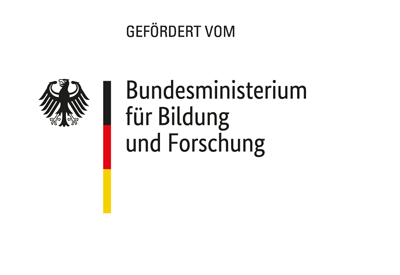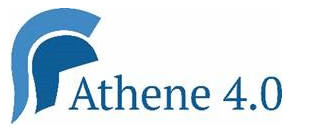Athene 4.0: Person-centred digitisation to secure the future of the craft sector
Athene 4.0 will contribute to digitisation of craft sector by developing a service platform. The platform will be used for internal order processing and communication with customers and between different trades.

This research and development project is funded by the German Federal Ministry of Education and Research (BMBF) in the program "Innovations for tomorrow's production, services and work".

The project is supervised by the Project Management Agency Karlsruhe (PTKA).
The ubiquitous digitization has been slow to make inroads in the skilled trades: In the small business sector, only half of all companies have a website or offer their customers services online. Customers who want to discuss material variants or technical execution details with their craftsman using new media currently have little chance of interactively incorporating their wishes into the process when using craftsman services. The flow of information within craft businesses is also often cumbersome. Coordination between customers and craftsmen, within crafts companies or between different companies working together on larger customer projects has traditionally been characterized by face-to-face discussions.
In the Athene 4.0 research project, a digital service platform is being developed to interconnect and network customers and various craft businesses. To ensure that the platform can be used by every craftsman in an uncomplicated manner and without new burdens, it includes a so-called "digital coach" who will provide online assistance and explanations during ongoing operations.
First, the requirements for the platform are systematically identified and specified. The analysis will focus on the subsequent users - the craftsmen and customers - with the customers taking on the role of co-producers. Craftsmen, research institutes and software companies jointly design and develop the platform on this basis. A pilot application is then created, which is tested in the model companies and accompanied and optimized by scientific acceptance studies. Since the developed tool will change work processes and employees will be confronted with extended requirements in their daily work, measures for their qualification and offers for work design will be developed, which will be integrated into the application as a so-called digital coach.
With the help of this innovative platform, communication paths are shortened, customers can express additional requests and quickly and easily request and share information about the status of the project, e.g. with real-time photos of the construction site or product samples. This leads to direct competitive advantages for craft businesses. The early involvement of multipliers such as chambers and associations, as well as the development of a business and financing model, guarantee the broad utilization and dissemination of the service platform.
- IML of the Fraunhofer Gesellschaft e.V. Dortmund
- Cobago GmbH
- Elektro J. Organista GmbH
- Goertz e.K.
- Painting company Markus Massmann
The aim of the project is to develop a digital service platform that enables communication and exchange between the various trades as well as between the trades and their customers. In addition, a low-threshold digitalization of order processing within the skilled trades is to be made possible.
The sfs is responsible for the analysis and design of working conditions with the new technology as well as for digital competence and qualification development.
To determine the requirements for the service platform to be designed, sfs will conduct work situation analyses in the companies with the aim of analyzing and documenting the operational processes that will be affected by the digitization solution. The status of the technology used in the companies and its areas of application will also be recorded. Based on this, the operational needs and possibilities and the requirements and wishes of the customers will be determined in collaboration with the craft businesses.
Once the service platform is available in an operational version, sfs will accompany the testing and piloting phases in the companies. In addition to user-friendliness and the possibility of intuitive operation, particular attention will be paid to changes in operational processes and application difficulties. Think-aloud methods, in which users articulate their impressions during testing, and reflection discussions at the end of the workday are used.
The collected changes in work processes through the developed tool are analyzed from an occupational science point of view and designed in such a way that the potentials can be used for the employees and companies without causing restrictions in the quality of life and work. For this purpose, consulting/coaching offers for work design will be developed by the sfs, tested in the companies and validated in reflection meetings. To ensure that the tool can be used by all participants beyond the project period, a "digital coach" is to be integrated into the platform/app on the basis of the piloting experiences, which will contain qualification elements and design advice. The sfs will develop the required learning content and forms for the digital coach and coordinate them with the software partner and the craft enterprises and optimize them in an iterative process. In addition, introductory seminars will be developed and held for the craft enterprises.




![[Translate to English:] [Translate to English:]](/storages/zentraler_bilderpool/_processed_/a/f/csm_Kontakt_b86e8d8ecc.png)
![[Translate to English:] [Translate to English:]](/storages/sfs-sowi/_processed_/6/c/csm_Glasfront_sfs_Header_eae6d325d3.jpg)
